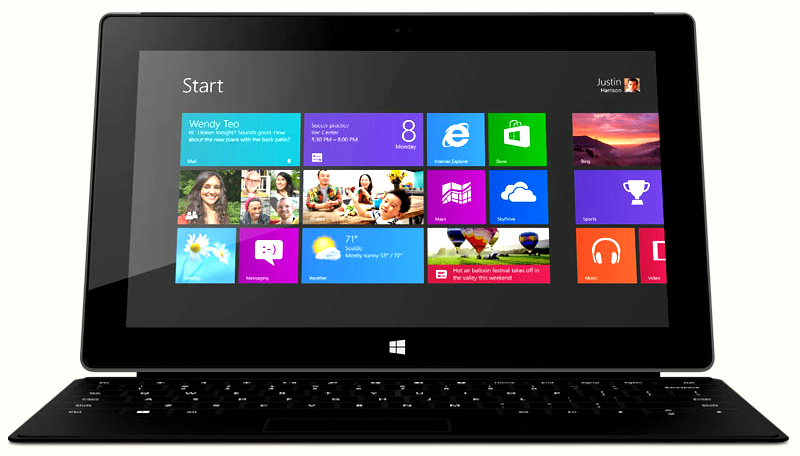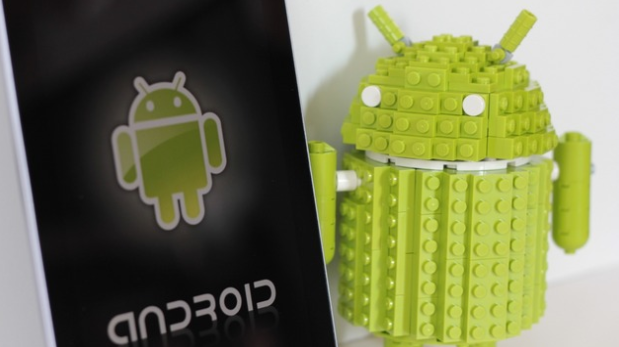
Overhauling a home network, Part 1 -- Making decisions
Over the years the little network within my humble abode has grown. It started as a way to connect a laptop and a desktop, but has since become a conglomeration of multiple devices -- a desktop, three laptops, an HTPC, a home server and even three smartphones. Not to mention that the Blu-ray player, DirecTV DVR and Netgear NeoTV are networked. It all comes together in a combination of ethernet and WiFi connections that are controlled through a router in the home office on the third floor of our old restored Victorian, an extender which resides in the entertainment cabinet in the living room -- sorry, "parlor" since it is a Victorian -- on the first floor and a network switch in the basement.
Parts are getting old however -- in the past year I had to buy a new router and replace my daughter's laptop. Recently, more things have become unreliable. My home server, which ran FreeNAS died recently. It was housed in an old tower PC that had once been our desktop. Our HTPC has grown old, despite having been upgraded with new video and audio cards and additional RAM. The Netgear NeoTV is not as reliable as it once was.

Why I love Surface Pro
First in a series. I have loved many computers and gadgets over the years. They typically share two things in common: Initial "Wow" reaction and improved experience the longer used. Microsoft Surface Pro gets the first, but more time is needed on the second. February 14 marks my fourteenth day using the tablet.
Too often tech vendors put too much emphasis on features while missing something more fundamental: Joy. How do you feel using the product. Does it make your life better? Are you happier for using the thing? Design -- how a product looks and the interaction with it -- is paramount. Apple products, for example, are pretty for a reason. On this Valentine's Day, after two weeks with Surface Pro, love is appropriate topic. Because the tablet makes me feel good.

Why I love Kindle
Second in a series. I had a nice surprise Valentine’s Day gift delivered to my door this morning -- a box of ten copies of my new novel (I Know What You Did Last Supper) courtesy of my publisher and fresh off the press. It seemed weird holding the book. Not just because it’s my first novel (co-authored with a friend), but because I haven’t held an actual book for maybe two years now.
When the Kindle first came out, I resisted it. I’ve loved books since I was child, and couldn’t ever imagine switching to an ebook reader. But then I was given the device as a Christmas present in 2009 and despite all my reservations fell in love with it almost immediately.

Internet Explorer is the last browser standing
Opera's decision to change rendering engines means three of the top five browsers will use Webkit. Internet Explorer stands alone, and that is the wrong place to be. In September 2009 post "Microsoft should dig deep into Webkit to keep Google from Framing IE", I suggested radical change, which unsurprisingly was ignored. Since, Chrome usage share grew from 2.9 percent in August 2009 to 17.84 percent in January 2013, according to Net Applications. Meanwhile, IE share fell from 66.97 percent to 55.14 percent.
But the real battleground, and where upstarts gobble up territory, is mobile -- yeah smartphones and tablets. While the category accounted for just 11.8 percent browser usage share in January, the majority is Webkit -- 61.02 percent just for Safari. Internet Explorer: 1.34 percent, or less than Chrome (2.02 percent). Android browser is 21.46 percent. As I expressed three-and-a-half years ago: "Microsoft should answer WebKit for WebKit, by releasing a new browser based on a new rendering engine; put on the IE brand and ship it for desktop and mobile". There's still time, but fast running out.

Modern Firefox for Windows 8 hits Nightly builds
Mozilla announced back in October that it would release a Metro Modern UI version of Firefox. At the time, the company released a "preview" version that was code named "Elm" which was an offshoot of the Nightly builds that the company produces for those users who wish to live on the bleeding edge of technology.
The day has finally arrived where that test build has graduated to an actual Nightly build. Yesterday evening Mozilla's Asa Dotzler announced that "preliminary Metro Firefox development work arrived at mozilla-central, the source code repository that feeds the Firefox Nightly channel".

Do you run third-party antimalware on Windows 8?
Call me stupid. Someone typically does in comments. But let me give you reason: I don't run third-party malware detector in Windows 8. Should I? I asked my colleagues what they use, and the general consensus is nothing -- just rely on Microsoft Defender. Are we all nuts, or is there no cause for using something else?
Today is my 12th day using Surface Pro as primary PC and first serious commitment to Windows 8, which I really like on this machine. I didn't rush to install antimalware, like earlier versions. Somehow, I feel safe using Windows 8 Pro. My question: Do you?

Vertu launches its first Android smartphone. Anyone got a spare $21,700?
Luxury British smartphone manufacturer Vertu used to be owned by Nokia and made its name producing incredibly expensive Symbian handsets. But times move on, and the company is now focusing on producing incredibly expensive Android handsets.
The first new product of this endeavor is the Vertu Ti. The 3.7-inch device sports a brushed titanium frame (making it up to five times stronger, and at 180g (6oz) quite a bit heavier than most other phones), with real leather trim and a sapphire-screen.

Making the case for the smart watch
With all apologies to my colleague Joe Wilcox, who bashed the Apple rumor of an "iWatch", I must respectfully disagree. I get his point, don't get me wrong. Most people of the "modern" generation do not even wear watches. In fact, they may not even own them. The cell phone has become the time piece of choice in today's world. I also understand that a watch is not the ideal place to check your email. The screen is simply too small.
However, there are uses for these devices for some of us. Not all of us, but some. I am a runner. Have been since middle school -- more years ago than I care to mention. Those of us who ran cross country and track, and later moved to road races, care about time and smartphones don't cover it. Sure there are apps for that -- Map My Run, Run Keeper, Nike...they all do the job. My colleague Wayne Williams loves Zombies, Run! But, who wants to strap a 4.5-inch screen to their arm and go for a run?

Lamest Apple rumor yet: iWatch
Either Apple has gotten so good at keeping secrets that no one knows what's next, or there ain't nothing new to gossip about. That is my reaction to the Wall Street Journal weekend story claiming the company is working on a wrist-watch. Move over Casio! Stop saving for Rolex! Because the fruit-logo company's next, big thing -- the new category to rival iPhone and iPad -- is the timepiece? Surely CEO Tim Cook and Company realize that many people get the time from computer or smartphone.
Some advice to Apple: Talk to "been there, done that" Microsoft, which made valiant effort with Smart Watch, only to fail. There was some real innovation behind the concept, using FM radio to transmit news, traffic and other data to the timepiece. But smartphones, more today than they did then, provide the same information. Will it really sell on the wrist?

Should you buy Microsoft Surface Pro?
Microsoft's flagship tablet running Window 8 Pro goes on sale in Canada and the United States on February 9. The device is the most-important released to date running the operating system, for what it seeks to accomplish and means for Microsoft. Critics call Windows RT a failure (I disagree). Distribution is the problem, if any, and that's easily remedied.
Still, RT badmouthing puts Pro perceptions in a bad spot. Microsoft's public relations team responded by getting devices out to reviewers and setting an embargo of 9 pm EST February 5. So four days before launch, a bunch of reviews exploded across the InterWebs around the same time. Younger reviewers from trendier tech tabloids tend to talk up Surface Pro while older fogies and those from more consumer pubs are more hesitant. I'm among the few old farts who get Surface and what Microsoft strives to achieve here. Then, again, I've covered the company for a long time.

Best Windows 8 apps this week
Fifteenth in a series. Several important applications received updates in the past seven days. Adobe updated its Reader application for Windows 8 and even changed the name of the application to Adobe Reader Touch. Microosft, too, released updates for several of its applications, including the Bing, which now includes video search results.
In another interesting turn of events, WinZip decided to remove the price tag from the company's Windows 8 app of the same name. The application, previously available for $7.99 is now available free.

Microsoft’s attacks on Google are sad and embarrassing
After I left school I went into sales. And one of the first things I was taught was this: never disparage the competition. Never say bad things about them -- even if what you’re saying is true, or you believe it to be at least -- because it makes the firm you’re representing seem petty and small.
Clearly this is a lesson Microsoft needs to learn. The firm’s marketing department, in particular whoever came up with the Scroogled campaign, is doing its best to turn the Redmond, Wash.-based technology giant into a petty, whining child, complaining about a rival rather than championing its own products. Instead of shouting triumphantly, "Use Outlook.com because it’s great and has all these benefits", Microsoft is reduced to grumbling, "Don’t use Gmail because it reads your emails". It’s not an aggressive information campaign as some people have described it. It’s a sad and frankly pathetic strategy.

Believe it, smartphones and tablets make people use PCs less
What a difference three years make. In April 2010 I asked "Will iPad cannibalize Mac sales?" and a month later PC sales. Fast-forward 12 months, NPD answered a definitive "No". I disagreed: "Call me cynical and skeptical, but I'm convinced that changing behavior will cause many smartphone buyers, and many more tablet adopters, to delay PC upgrades".
Today, NPD sees things a little differently, based on fresh survey data that puts context behind two years of declining PC sales -- that despite Windows 8's release little more than three months ago. The firm finds that 37 percent of US consumers now access content on smartphones or tablets they used to on PCs. Changing behavior like this affects computer sales, as consumers shift behavior and delay PC upgrades or don't buy ever.

What happens when Lego meets Android?
Nothing says geek quite like Lego. Come on -- you know you secretly still love those tiny multi-colored bricks from your youth. Except now they are not just bricks, and the simple projects of our youth have become the incredibly complex projects of our children's youth...that we still love to "help out" with.
Lego Cuusoo is a "Labs" type of project where customers can suggest future kits and if the item gets at least 10,000 supporters then Lego pledges to consider producing it. And now the company is faced with an Android project that easily passed that requirement yesterday evening.

Employees frequently steal (and use) confidential data when switching jobs
According to Symantec, businesses are increasingly at risk of insider IP theft, with staff moving, sharing and exposing sensitive data on a daily basis and, worse still, taking confidential information with them when they change employers.
A new survey conducted by The Ponemon Institute, and based on responses from 3,317 individuals in the United States, United Kingdom, France, Brazil, China and Korea, shows that half of employees admit to taking corporate data when they leave a job, with 40 percent saying they intend to use the data in their new position.
